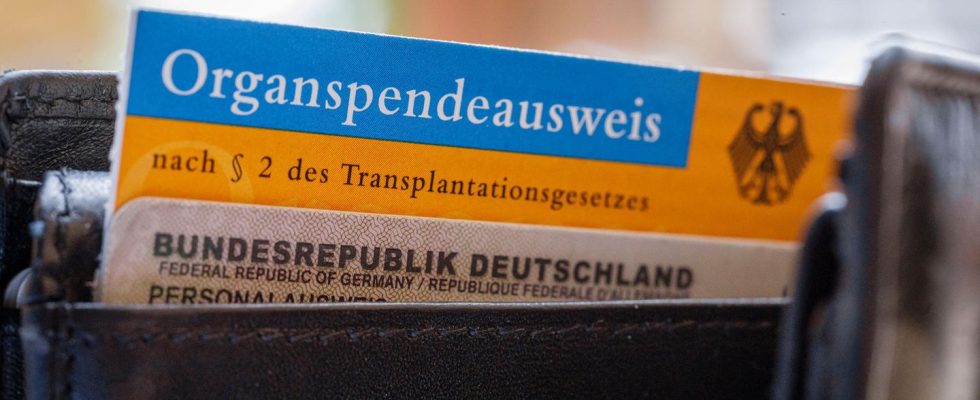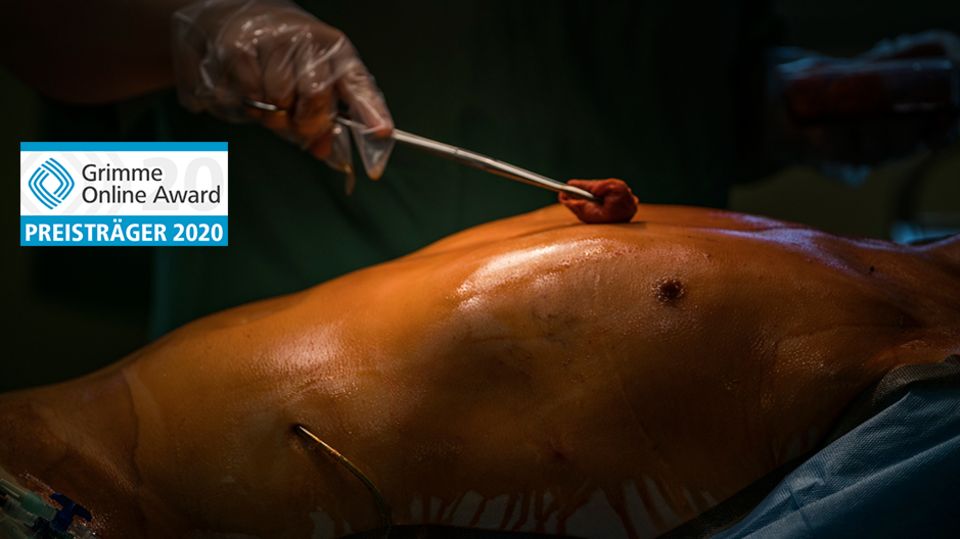An online register for organ donation is also gradually being introduced in Germany. In the final expansion phase, all “removal clinics” should have access to it. Our author thinks this is useful – if there weren’t technical hurdles and a much more fundamental problem.
They had hoped like everyone else who is on the waiting list for a donor organ. But last year the time became too long for 650 sick people. They died before they could be helped. The number comes from Eurotransplant, the association that stretches from the Netherlands via Germany to Croatia and coordinates the distribution of kidneys, hearts, livers, lungs or pancreases for around 140 million people.
This year, too, there are 40 “departures” or “removals” due to death in these statistics, as it is called in technical language. At the same time, however, there were 725 new entries in the first two months of the year alone – patients whose survival depends on receiving a replacement for their own worn-out organ as soon as possible. A total of 8,500 people in Germany are currently in this delicate situation. But last year, for example, only 965 declared donors whose organs could be transplanted died. The stark disproportion is obvious.
New organ donation register with technical hurdles
One of the things that is now intended to remedy this is an online register, which was approved by the Bundestag four years ago. In order to be able to register there, you don’t need a degree in computer science, but you do need an ID card with online identification function including a 6-digit PIN, a health insurance number and an email address, as well as a smartphone or a computer with the “ID App” , Version 2. This is donated by the federal government in order to be able to use the online function hidden in a chip on the ID card.
Understood? It could be that simple, some people probably think, including the author of these lines. For example, why not “opt-out” instead of “opt-in”?
Behind these internationally common abbreviations lie two fundamentally different models for organizing organ donation. In the first case, I only have to take action if I am not prepared to have organs or tissue removed after death. I am then “out” of the pool of possible donors, to which everyone else automatically belongs unless they have also officially objected.
However, there was no majority in Germany for this simple model. That’s why the reverse procedure applies to us: Anyone who doesn’t expressly make themselves available will not be considered for the search for an organ.
If a removal has not been expressly objected to, relatives can still be questioned when a person dies and, together with the medical team, come to the conclusion that it is in the interest of the deceased to donate an organ or tissue. But you don’t even want to imagine such conversations – on your deathbed, so to speak, with machines still running to maintain the circulatory functions of the brain dead. Such decisions are undoubtedly unreasonable for everyone.
With “opt-out” this wouldn’t happen at all. But the simpler version is by no means the more popular. Studies show that the “opt-in” decision with maximum personal freedom is preferred by a majority of the population – not everywhere in Europe, but not only in Germany, but also, for example, in the Netherlands, where a corresponding regulation was introduced in 1996. a year before the German one was introduced. However, scientific surveys also showed that only just under a third of people knew which legal procedure applied in their own country. How should a decision be made then?
When it comes to organ donation, we tend to ignore it
It goes without saying that such a sensitive topic requires a lot of clarification. There are also many offers, entire campaigns, brochures galore and online sites with answers to every conceivable question about organ donation. But all of this is used rather cautiously. As long as nothing is pressing, it is obviously difficult to deal with the end of one’s own life and ultimately even to come to a decision.
This is also shown by the spread of living wills or powers of attorney in the event that one is no longer able to make decisions about one’s life. There are no exact numbers. But estimates for the Bundestag a few years ago came to 4.7 million health care powers of attorney and 3.5 million registered living wills. And with 84 million people in the country, all of whom will find themselves in a situation in which such documents will become important – it’s a sure thing. Confronting people gently but clearly with this inevitability is the best way to rethink their stance on organ donation or even find it in the first place. At least that’s what some studies and field tests in recent years suggest. The data situation is not extensive. But at least it shows trends.
Of course, we all tend to repress things to a greater or lesser extent. Who wants to face their own finiteness when nothing hurts and the sun is shining? But if you come across it carefully, for example by trained experts, it can be the deciding factor. A few years ago, for example, a team of marketing specialists from Canadian and US universities found that “reciprocal altruism” was a particularly convincing approach. This basically means very simple appeals. For example: “If you needed a donor organ yourself, would you accept one? If so, please help save lives and register today.” Of all the methods tested, this “just imagine” method alone led to a significant increase in registration numbers. And where do you ask such questions? In schools, for example, not just in nursing homes.
Yes, it hurts to put yourself in a position where your life depends entirely on the goodwill of others. But only those who do not avoid this thought, do not repress it, have even felt despair firsthand or experienced it in someone close to them, can at least begin to understand what it is like to find no one to help. What it’s like not to be offered another organ when your own strength weakens with each passing day and time passes. We probably have to look death in the eye, at least mentally, in order to be able to grasp it.
And if that threatens to overwhelm you, you can also be more sober. “Reciprocal altruism” can also be translated quite simply: As you do to me, so do I to you. This can also be understood by those who are not on a waiting list. It doesn’t even require compassion for those whose time is already running out. A little logic is enough: organ donation cannot work – with or without an online register – if most people in a society have organs but would rather not give them.



